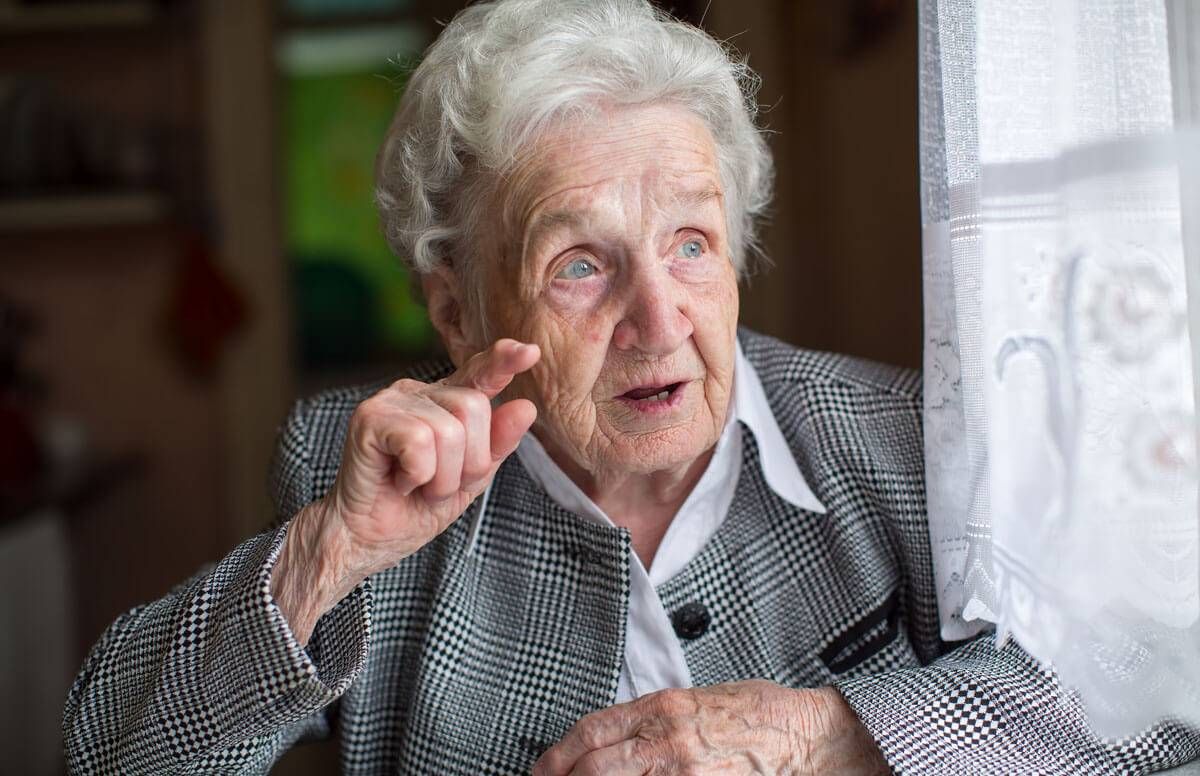When Your Parent Refuses Caregiving Help
Advice from a Care.com vp, the author of 'My Parent's Keeper'
(Excerpted from My Parent’s Keeper: The Guilt, Grief, Guesswork, and Unexpected Gifts of Caregiving by Jody Gastfriend. Copyright © 2018 by Jody Gastfriend. Excerpted by permission of Yale University Press. All rights reserved.)

Providing caregiving for your parent is a profound life-altering shift of roles that requires balancing the right to self-determination with the recognition that your mother and father need help. One of the biggest frustrations for adult children is that they come up with a plan that makes perfect sense to them but their parent says, “Thanks but no thanks.”
When our parents’ refusal to accept help puts their safety and well-being in jeopardy, we feel compelled to act, yet our good intentions are often thwarted. Over the years, I have heard countless stories of caregivers who tried strong-arming their parent to accept help — only to feel angry and dismayed when their efforts failed.
When a Parent Refuses Caregiving Help
For some sons and daughters, getting your parent to accept help may require more than just strategy, patience and a plan. It may take a crisis.

Take the case of Rachel and her mother Sally. At 88, Sally insisted she was safe driving despite evidence to the contrary. When Sally had to stop driving, due to flunking a driving assessment, she was devastated. But she was also willing to consider outside help. And there was the opening.
Rachel persuaded her mother to hire a professional caregiver, who assumed the roles of chauffeur, housekeeper and companion. Rachel breathed a sigh of relief.
What can adult children do when their parent refuses help? We can work with them — as much as possible — and not against them. We can empathize with their fears and not take their resistance personally.
But that doesn’t mean we accept any behavior, no matter how problematic and risky, and allow ourselves to be whipsawed and trodden upon, like a caregiving doormat.
'I Don't Need More Help'
“I’ve got daughters. So I don’t need more help,” explained Ed, a strong-willed 85-year-old with type 2 diabetes that was spiraling out of control. “He’s got a hard- headed thing going on,” Jan said of her stepfather.
In the months after Jan’s mother died, Ed’s health markedly declined. Ed grew more confused, driving around not knowing where he was and frequently forgetting to take his insulin. When his blood sugar spiked to a dangerous degree, Ed refused to go the hospital. Jan, upset and alarmed, pleaded with her stepfather and eventually called 911 against his wishes.
Since Jan was unmarried, she was the daughter designated to take it all on. After leaving her temp job to be a full-time caretaker, Jan could no longer afford her apartment. So she moved in with Ed and braced herself for the rough road ahead.
First, Ed spent a week in the hospital and had two toes amputated. Then he was discharged home with infected ulcers. Despite all of Jan’s efforts, the ulcers worsened and Ed’s leg had to be amputated. Although Ed was able to put on his own prosthetic, he refused to do so and was confined to a wheelchair.
Compounding things further, Ed would not agree to an outdoor ramp, making movement in and out of the house a Herculean task. He was stuck — physically and emotionally. And so was Jan.
The wake-up call came from an unexpected source — Ed himself. Ed began to worry about Jan’s health and urged her to see a doctor. When Jan finally did, it was bad news. Jan too was diabetic. It was time to get more help and learn to say no.
Finding Workable Solutions
“I can’t do this on my own any longer.” Jan said to her sister. Rather than ask tentatively as she had done in the past, Jan explained matter-of-factly what she needed: help on evenings and weekends with their father’s care.
Then Jan told Ed he didn’t have the choice to refuse the ramp — it was going to happen. Jan even found grant funding through the city department of planning to pay for the ramp installation.
“And when I was able to wheel him in and out of the house, he was happy about the ramp! I even got him to put on his prosthetic so he wouldn’t be stuck in the wheelchair all day,” said Jan.” I learned I could not always wait for my father to agree to everything.”
Understanding a Parent's Resistance
Our parents, especially those with chronic illnesses, may fear losing their independence and reject help as a means of exerting control. If we understand resistance as a way to “take arms against a sea of troubles,” then we can accept there may be pros and cons to our parents’ stubbornness.
The idea that a crisis may prompt our parent to ultimately accept help is a grim reality for some. But offering choices and ceding a little control along the way may help break down walls of resistance.
If your mother needs a caregiver, include her in the hiring process. If you’re concerned about driving, discuss alternative means of transportation. If your father refuses to leave his home, look into the feasibility and costs of home modification.
Taking an Indirect Approach
Sometimes, an indirect approach is better than a frontal assault.
For example, the Bourne family’s solution to their father’s resistance was to lose the term caregiver. Cliff Bourne had dementia and was getting to the point where he needed — but adamantly refused — a paid caregiver. A retired CEO, Cliff was used to being in charge and not accustomed to relinquishing control. But when he urinated in the closet instead of the bathroom, his kids knew they had to act. So they came up with the idea of hiring a part-time “assistant.”
The assistant would prepare meals, take Cliff on walks, do a little laundry, and help out around the house. Over time, the assistant won Cliff’s trust and was able to increase her hours and perform personal care-related tasks with skill and compassion.
If, despite your best efforts, your parent won’t budge, you may need professional help. Aging life care professionals, elder law attorneys, and professional mediators can provide an objective perspective about financial and legal matters and lay out options for care. They may also dislodge entrenched parents from unreasonable and unsustainable positions that put themselves and others at risk.
Somehow, you must find common ground —not just with your parents, but sometimes with your siblings too.

